The AeLIMIN+ program, led by the Louis Malardé Institute in partnership with the Tetiaroa Society and The Brando Hotel, aims to eliminate the Aedes polynesiensis and Aedes aegypti mosquito populations on certain motu of Tetiaroa, particularly Onetahi and Honuea. To achieve this, two innovative and environmentally friendly techniques are used:
- the Incompatible Insect Technique (T2I), which consists of releasing male Aedes polynesiensis mosquitoes each week, carrying a bacterium (Wolbachia) which makes them incompatible with local females;
- the Sterile Insect Technique (SIT), launched in 2025 in response to the appearance of nuisances linked to Aedes aegypti, which is based on the weekly release of males rendered sterile.
The program also combines the reduction of larval breeding sites (especially around the hotel), the installation of traps on solar panels, and awareness-raising actions.
Summary of field activities
The interventions took place every week, from Monday to Friday, between April and June 2025, exclusively on Motu Onetahi. Activities included:
- regular entomological monitoring, including trap monitoring,
- the installation of 24/7 active traps powered by electricity and solar panels.
- the release of incompatible male mosquitoes (T2I) Aedes polynesiensis,
- the release of sterile male mosquitoes (SIM) Aedes aegypti,
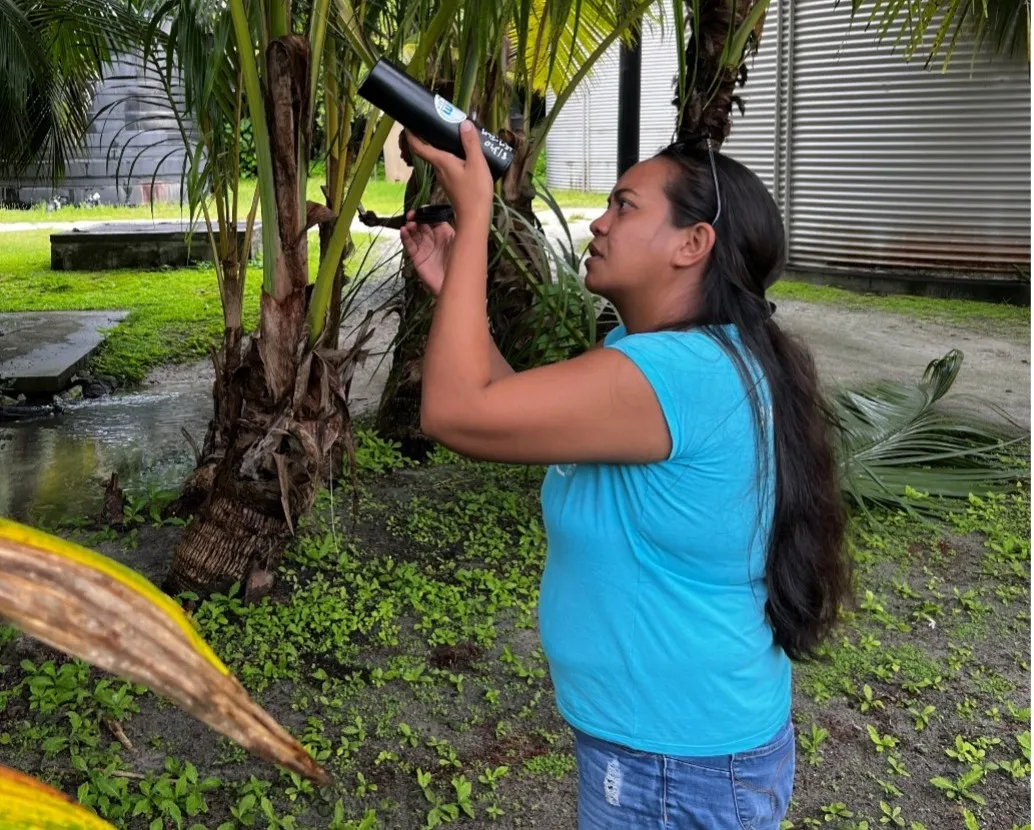
Impacts & Preliminary Results
Field observations confirm the positive effect of the training and awareness-raising actions carried out in April 2025.
Concrete efforts were observed from the hotel staff, including:
- storing equipment in a sheltered place,
- the elimination of potential breeding grounds for mosquitoes,
- better management of the immediate environment.
These changes contribute to strengthening the effectiveness of the TIS and T2I techniques. In addition, demonstrations of sterile male mosquito releases were carried out among hotel guests, who showed interest and appreciation for this ecological and non-chemical strategy
The program will continue with:
- maintaining weekly releases of sterile and incompatible male mosquitoes,
- an annual mission including a new inspection of larval breeding sites and training of staff in good practices.
A scientific publication is in preparation to share the results obtained on the effectiveness of the incompatible insect technique (T2I) in a real operational context.


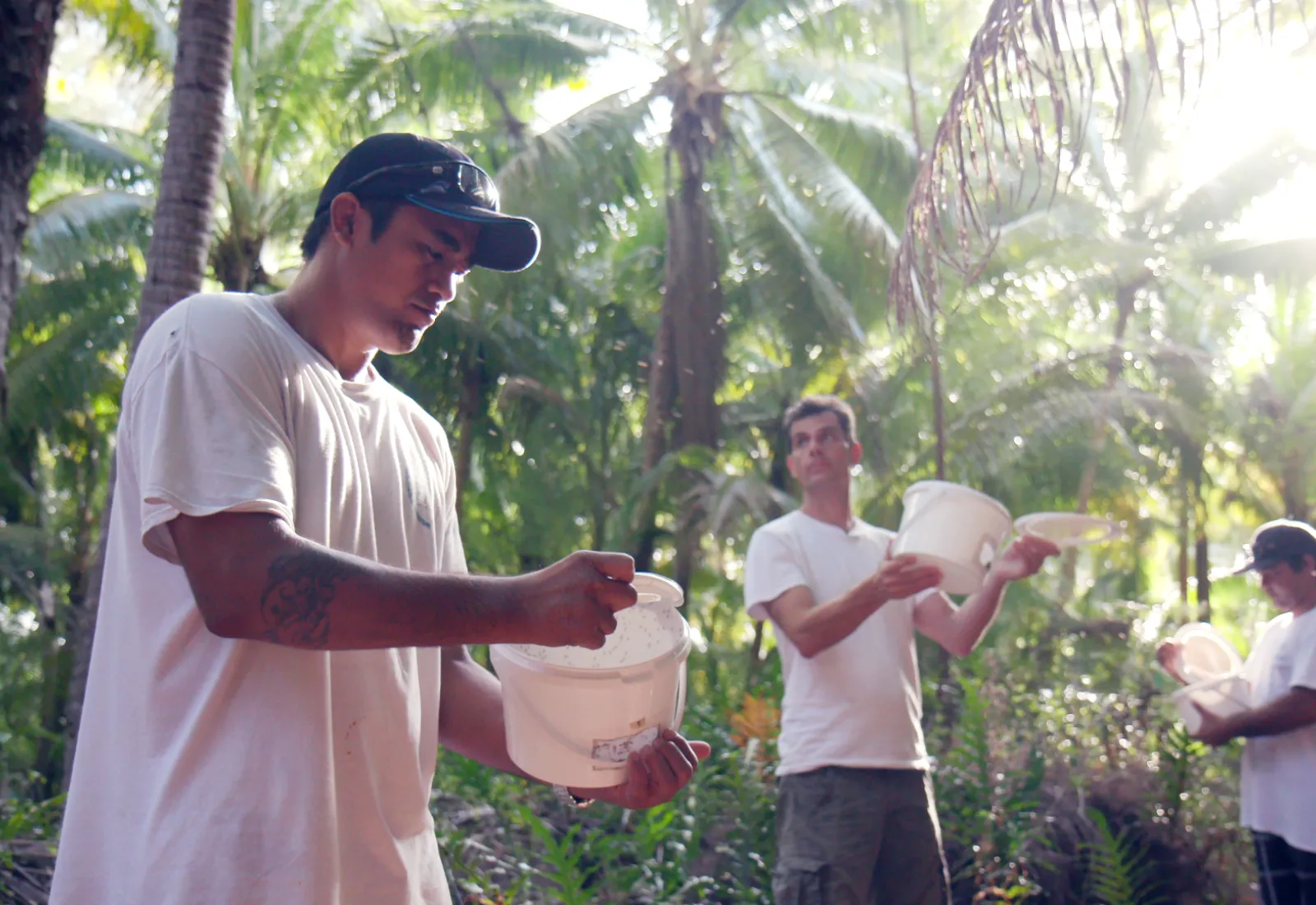
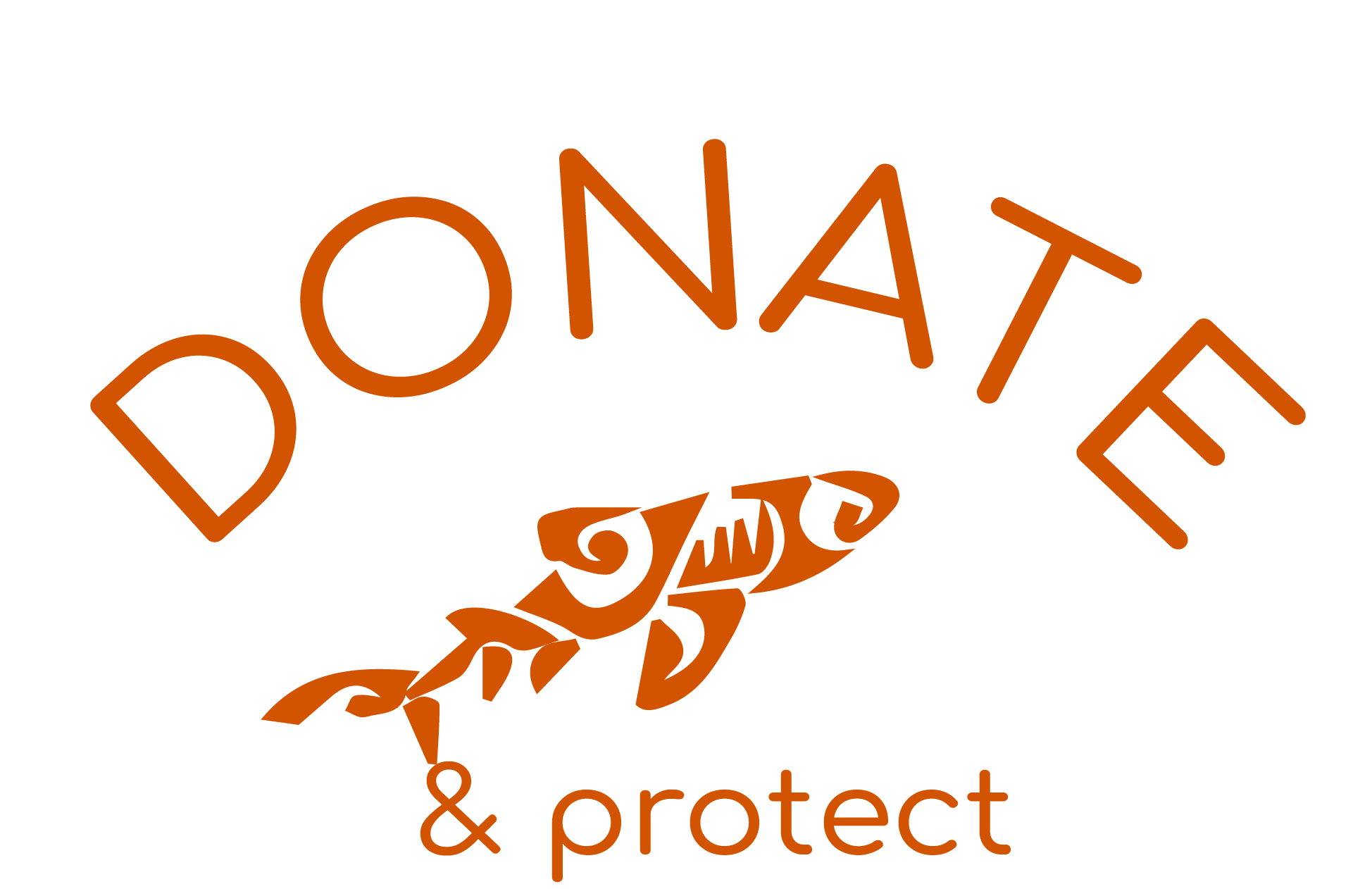
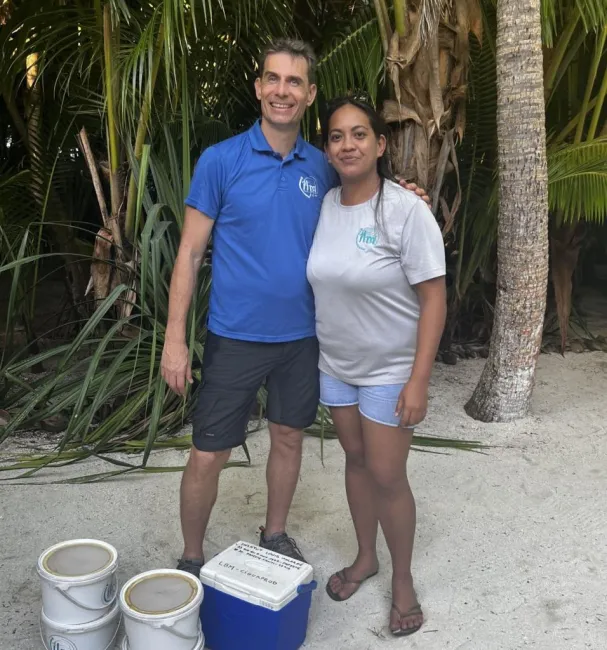 Hervé Bossin et Karine Wong-Sung
Hervé Bossin et Karine Wong-Sung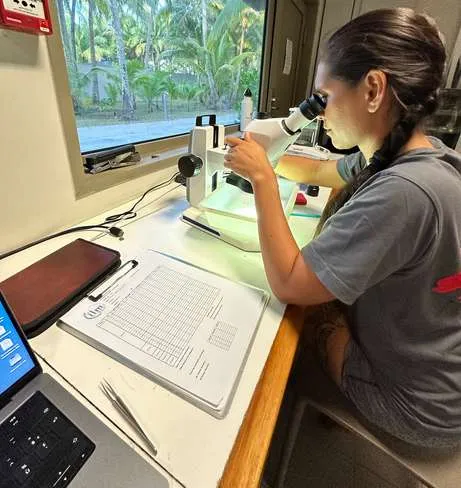 Ocean identifie les espèces de moustiques
Ocean identifie les espèces de moustiques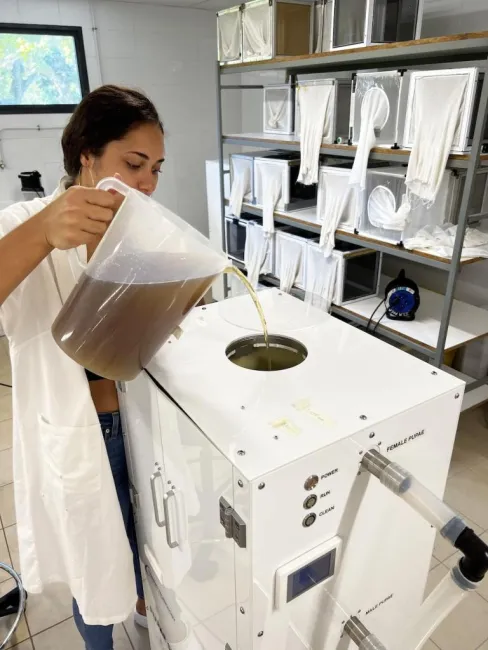 Teragihei verse les pupes mélangées dans la machine de séparation.
Teragihei verse les pupes mélangées dans la machine de séparation.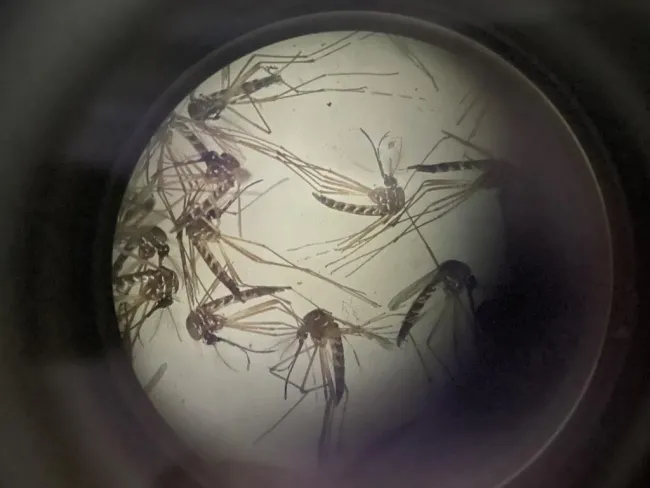 moustiques
moustiques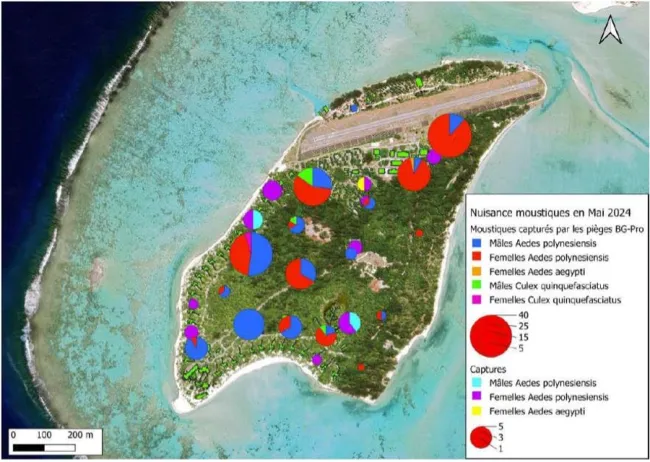 Carte des moustiques à Onetahi
Carte des moustiques à Onetahi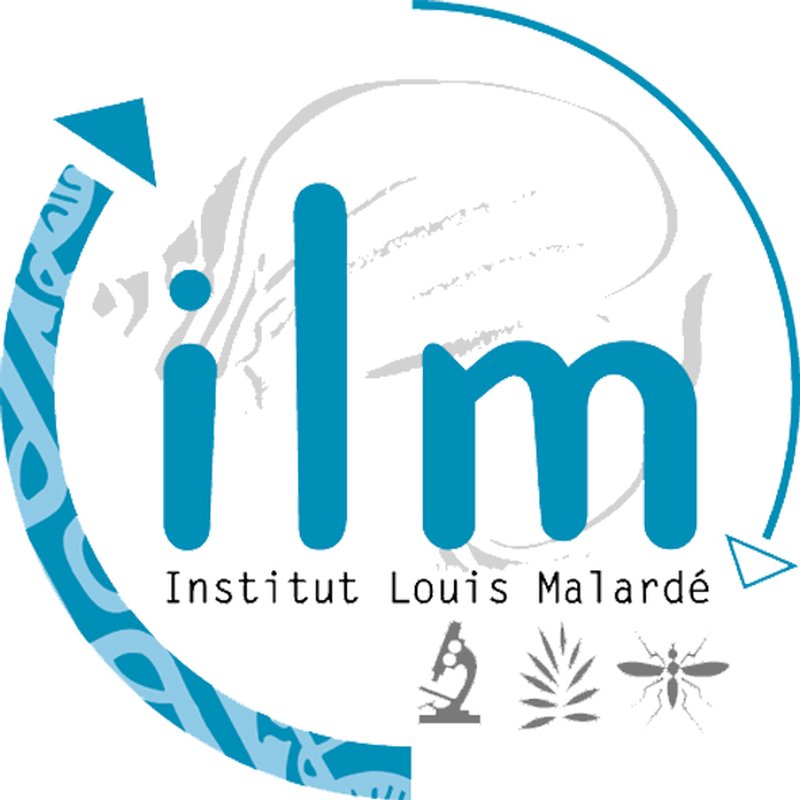
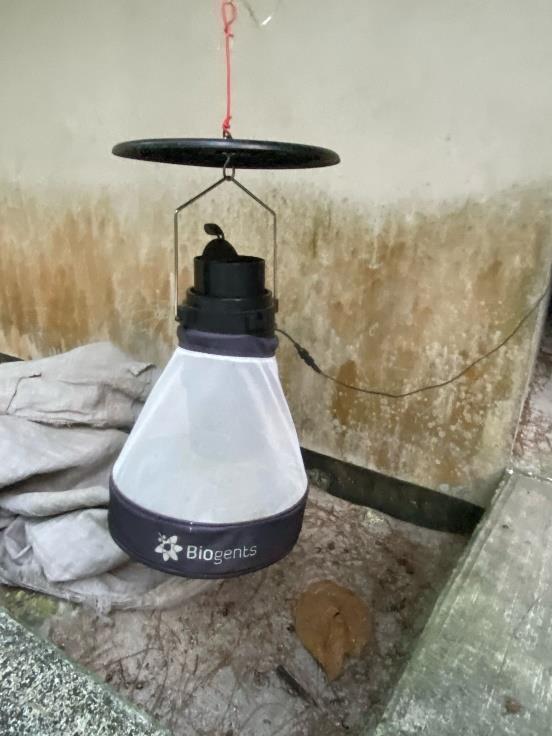
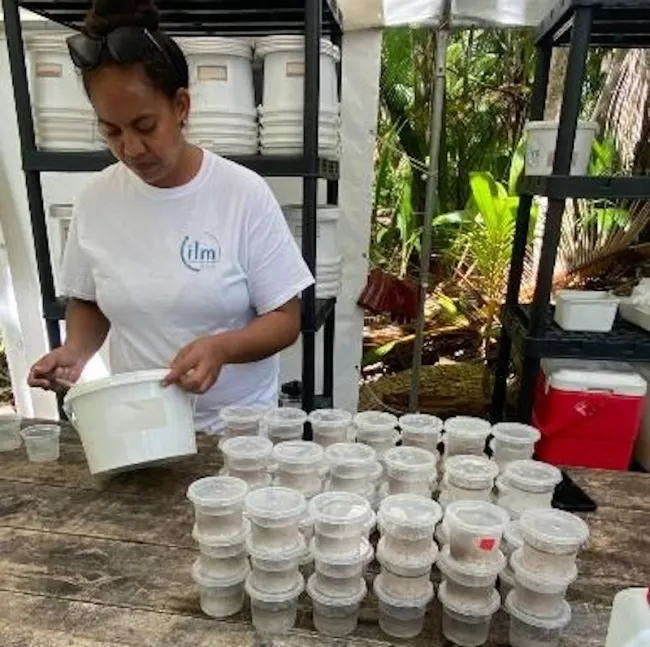 Prepping for emergent male nymphs
Prepping for emergent male nymphs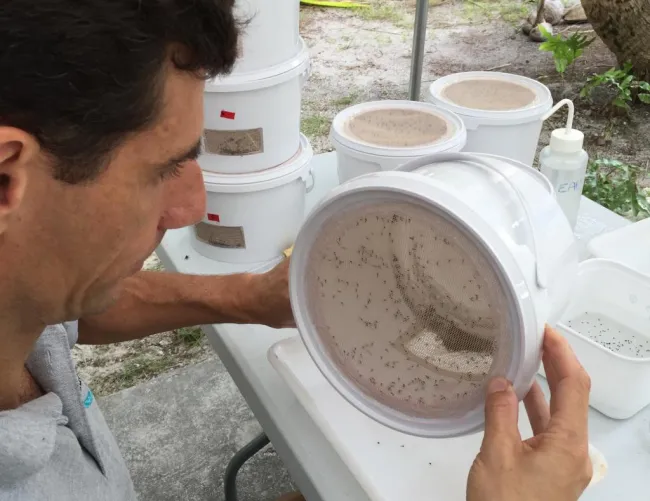 Hervé checking the buckets
Hervé checking the buckets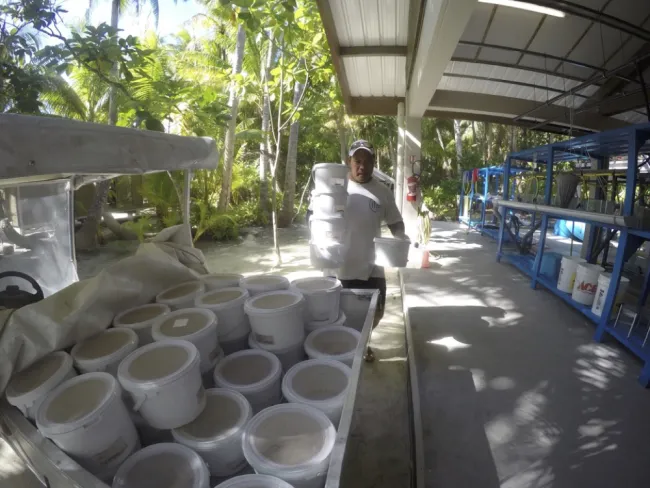 Loading male mosquito release buckets onto cart
Loading male mosquito release buckets onto cart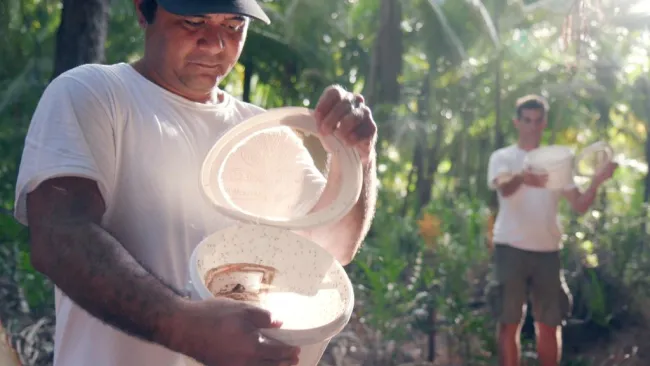 Male mosquito release - photo: Denis Pinson
Male mosquito release - photo: Denis Pinson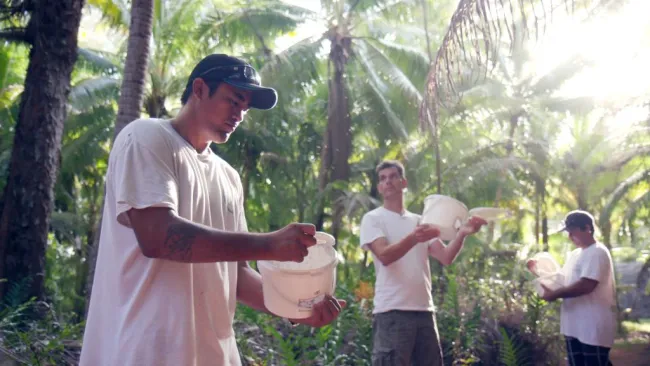 Male mosquito release - photo: Denis Pinson
Male mosquito release - photo: Denis Pinson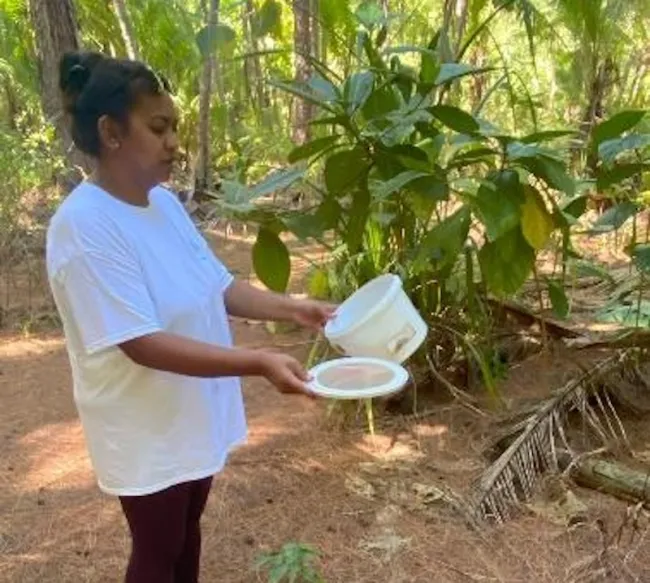 Releasing the mosquitoes
Releasing the mosquitoes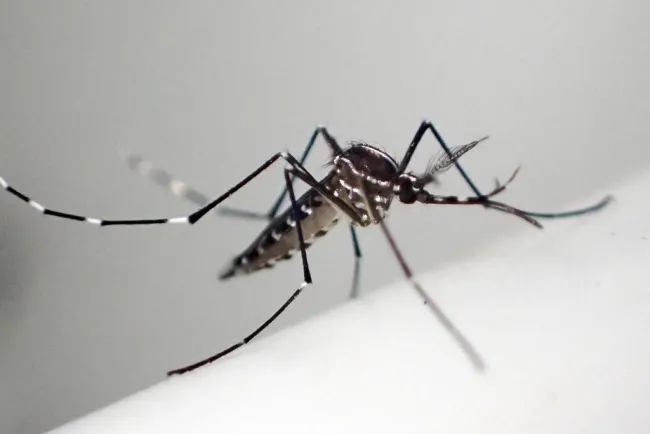 Ae polynesiensis incompatible male - photo: J. Marie
Ae polynesiensis incompatible male - photo: J. Marie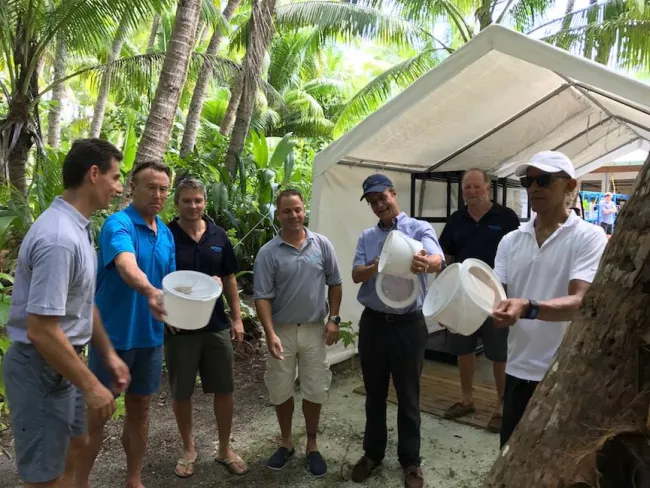 President Obama releasing sterile male mosquitos with the Mosquito Control program run by Herve Bossin at Institute Louis Malarde.
President Obama releasing sterile male mosquitos with the Mosquito Control program run by Herve Bossin at Institute Louis Malarde.